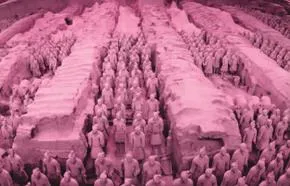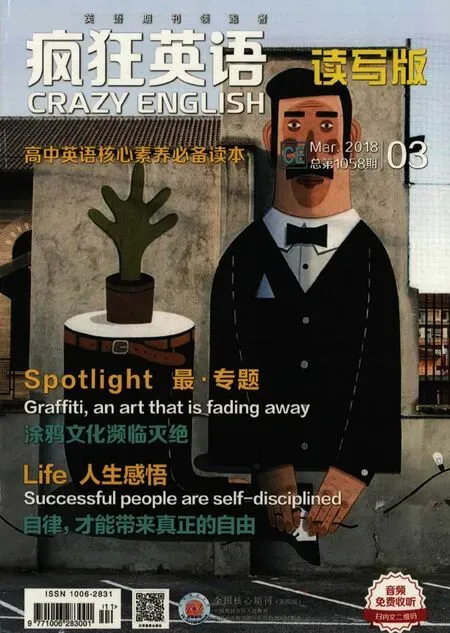China emperor’s hunt for elixir of life
By Calvin Harris
中国第一位皇帝秦始皇生前一直寻求长生不老的秘方。根据中国考古学家的最新发现,秦始皇执政时广为下达“求仙问药”的全国政令。一批近年出土的千年简牍证实了秦始皇当年如何急欲寻求不死秘方。

China’s first emperor launched an obsessive search for the elixir of life before dying aged 49 in 210 BC,new archaeological research has revealed.
Qin Shi Huang,who created the world-famous terracotta army,ordered a nationwide hunt for the mythical potion.
The quest is mentioned in 2000-year-old texts written on thousands of wooden slats—used in China before paper.
They were found in 2002 at the bottom of a well in central Hunan province.
The writings contain an executive order issued by the emperor,and assorted awkward replies from regional governments who had failed to find the key to eternal life.
One locality,Langya,apparently believed that“an herb collected from an auspicious local mountain”could fit the bill.
Qin Shi Huang's terracotta warriors were further evidence of how seriously he took mortality.The 8,000 soldiers depicted his armies,including horses and chariots.
When he died,they were arranged in his huge mausoleum to protect the emperor in the afterlife.
最近的考古研究发现,中国第一位皇帝(死于公元210年,享年49岁)穷其一生都在寻找长生不死药。
创造了兵马俑的秦始皇,曾下令在全国范围内搜寻只属于神话传说中的灵丹妙药。
对长生不老药的探寻在2000年前纸张发明之前的几千卷木简中均有记载。
在2002年,人们在中国中部省份湖南省的一口井底下发现了这些带有记载的简牍。
简牍上记载了皇帝的诰令,以及地方官员因找寻永生之法无果而小心翼翼回禀的奏书。
而秦始皇却相信琅琊“有仙山,可寻不死之草,以其入药,可保长生不死”。
秦始皇的兵马俑进一步证明了他对生死看得有多重。他的(俑)军队有8000士兵,还有战马战车。
秦始皇入土后,兵马俑随葬,以期能够在死后的世界继续为皇帝效忠。
——以里耶秦简为中心

